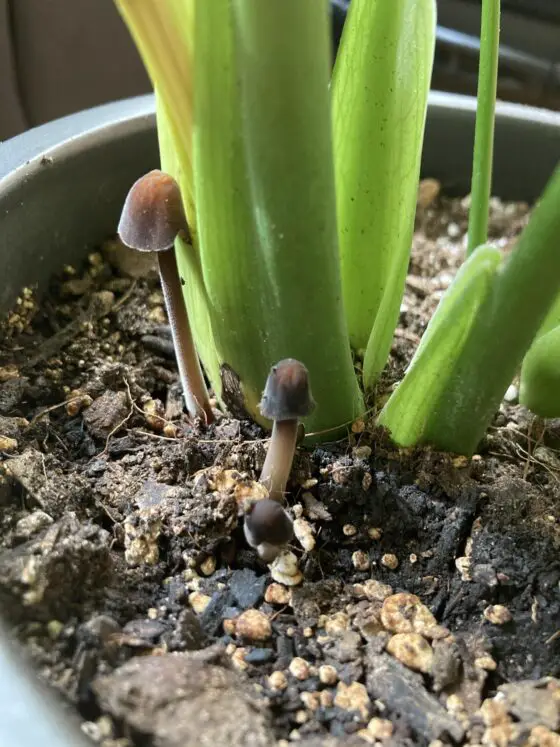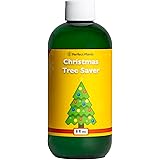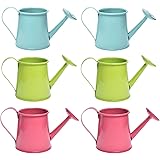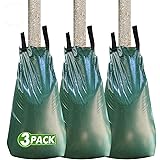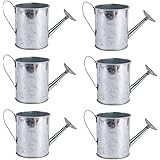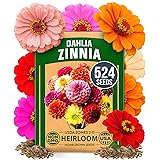Can monstera cause allergies? The answer is yes, it can. If you’re an avid plant lover, chances are you have come across the monstera, with its stunning leaves and vibrant presence. But beneath its beauty lies a potential allergy trigger that can leave some individuals feeling less than enchanted.
Don’t worry, though! In this article, we will explore the causes and solutions to monstera allergies, so you can continue to enjoy the wonders of this beloved plant without any discomfort. Let’s dive in and discover how to coexist with monstera in harmony.
Can Monstera Cause Allergies?
Monstera, also known as the Swiss cheese plant, is a popular houseplant known for its large, glossy leaves and unique leaf patterns. While many people enjoy keeping Monstera plants in their homes, there is a common concern about whether they can cause allergies.
In this article, we will explore the topic of Monstera allergies in detail, addressing various subtopics to provide you with a comprehensive understanding of the subject.
Allergies 101: Understanding the Basics
Before diving into the specifics of Monstera allergies, it’s essential to have a basic understanding of allergies themselves. Allergies occur when the immune system overreacts to a substance (known as an allergen) that it perceives as harmful. Common allergens include pollen, dust mites, pet dander, and certain foods.
Allergy symptoms can vary from person to person but often include sneezing, itching, watery eyes, nasal congestion, and skin rashes. Some individuals may experience more severe reactions, such as difficulty breathing or anaphylaxis, in extreme cases.
Potential Allergens in Monstera
To determine if Monstera plants can cause allergies, we need to identify the potential allergens present in the plant. While Monstera plants themselves are not typically considered highly allergenic, there are a few factors that could trigger allergic reactions in individuals who are sensitive to certain substances:
- Pollen:
Monstera plants produce small flowers that can release pollen into the air. Pollen is a common allergen for many people, especially those with hay fever or seasonal allergies. However, Monstera pollen is not known to be a significant allergen compared to other plants with more pronounced flowers.
- Plant Proteins:
Like other plants, Monstera contains proteins that can cause allergic reactions in some individuals. These proteins are typically found in the sap, which can come into contact with the skin or mucous membranes of susceptible individuals.
- Plant fibers and particles:
Monstera plants have large, textured leaves that can accumulate dust, mold spores, or other airborne particles. These particles can potentially trigger allergies or worsen existing respiratory conditions in sensitive individuals.
Read More: About How Long Does Terrarium Last?
Common Symptoms of Monstera Allergies
If you are concerned about potential allergies related to Monstera plants, it’s crucial to be aware of the common symptoms. While reactions can vary from person to person, here are the typical symptoms associated with Monstera allergies:
- Nasal congestion: A stuffy or blocked nose is a common symptom experienced by individuals with allergies.
- Runny nose: Excessive nasal discharge, also known as a runny nose, may occur due to an allergic reaction to Monstera.
- Sneezing: Frequent sneezing is a common allergic response to allergens, including those potentially present in Monstera.
- Itchy eyes and throat: Itchiness in the eyes and throat can be an uncomfortable symptom associated with allergies.
- Skin irritation: Some individuals may experience skin redness, itching, or a rash when coming into direct contact with Monstera sap.
Preventing and Managing Monstera Allergies
If you suspect that you may be allergic to Monstera or are experiencing allergic symptoms when in close proximity to the plant, there are several preventive measures and management strategies you can employ:
1. Minimize Exposure:
If you have confirmed allergies to Monstera or suspect you might be allergic, limiting your exposure to the plant is the most effective prevention strategy. Consider the following:
- Keep Monstera plants in well-ventilated areas or rooms where you spend less time.
- Avoid placing Monstera plants in your bedroom, especially if you have respiratory allergies.
- Consider moving the plant outside or giving it to a friend if your allergies persist or worsen.
2. Practice Good Hygiene:
Adopting good hygiene habits can help reduce the risk of allergens spreading and causing allergic reactions:
- Wash your hands thoroughly after handling Monstera plants or coming into contact with their leaves or sap.
- Avoid touching your face or rubbing your eyes after handling the plant.
- Clean and dust the leaves of your Monstera regularly to minimize the accumulation of allergens.
3. Use Protective Measures:
For individuals who are highly sensitive to Monstera allergens, taking additional protective measures can be beneficial:
- Wear gloves when handling Monstera plants or performing maintenance tasks, such as pruning.
- Consider wearing a mask or using a respiratory protective device if you are particularly susceptible to respiratory allergies.
4. Consult a Healthcare Professional:
If you experience persistent or severe allergy symptoms related to Monstera, it’s advisable to consult a healthcare professional. They can assess your condition, provide an accurate diagnosis, and recommend appropriate treatment options. Allergy testing may be conducted to identify specific allergens.
In conclusion, while Monstera plants may trigger allergies in some individuals, they are generally not considered highly allergenic. The potential allergens present in Monstera, such as pollen, plant proteins, and particles, can cause nasal congestion, runny nose, sneezing, itchy eyes and throat, and skin irritation.
However, by taking preventive measures, practicing good hygiene, and seeking medical advice if necessary, you can effectively manage and minimize the risk of experiencing allergies related to Monstera plants.
Read More: About Easy Steps On How To Mount Heat Lamp In Terrarium: A Guide
Frequently Asked Questions (FAQs)
Monstera plants can potentially cause allergies in some individuals. The allergens are usually found in the plant’s sap, which can cause skin irritation and other allergic reactions. However, it’s important to note that not everyone will have a reaction to Monstera plants.
Symptoms of Monstera allergies can vary from person to person. Common symptoms include skin redness, itchiness, rash, and swelling upon contact with the plant’s sap. In some cases, individuals may also experience respiratory symptoms such as sneezing, coughing, or shortness of breath.
To prevent allergic reactions from Monstera plants, it is recommended to wear gloves when handling the plant or working with its sap. Additionally, washing your hands thoroughly after contact with the plant can help remove any allergens. If you are highly sensitive to the plant, it may be best to avoid having it in your environment altogether.
Yes, allergies to Monstera plants can develop over time. Some individuals may come into contact with the plant numerous times without experiencing any allergic reactions, but develop sensitization over repeated exposures. It is always best to be cautious and aware of any changes in your body’s reaction to the plant.
While most Monstera species contain allergenic substances in their sap, the severity of the allergic reactions may vary. Some species may produce more potent sap, leading to stronger allergic responses. It is important to research and understand the specific species of Monstera plants you have to assess the potential risks.
Treating Monstera allergies typically involves managing the symptoms. If you experience skin irritation or rash, applying a soothing topical cream or ointment can help relieve discomfort. Over-the-counter antihistamines may be useful in alleviating respiratory symptoms. However, if symptoms persist or worsen, it is recommended to consult a healthcare professional.
Monstera allergies are relatively uncommon, but some individuals may be more prone to developing allergies than others. Sensitivity to the plant’s allergens can vary, and not everyone will have an allergic reaction upon contact. If you or someone you know has a known sensitivity to plants, it is advisable to exercise caution when dealing with Monstera.
No, Monstera allergies cannot be transmitted from one person to another. Allergic reactions occur due to an individual’s immune response to the plant’s allergens. Unless someone else comes into direct contact with the plant, they will not experience an allergic reaction simply from being around someone who is allergic.
Final Thoughts
Monstera plants are popular for their beautiful foliage and ability to thrive indoors. While they are generally considered safe, it is important to note that some individuals may experience allergies when exposed to monstera. These allergies are typically caused by the plant’s sap, which contains calcium oxalate crystals. Symptoms may include skin irritation, itching, and respiratory issues.
If you suspect a monstera allergy, it is best to avoid direct contact with the plant and consult a healthcare professional for proper diagnosis and treatment. So, can monstera cause allergies? Yes, it can, and it’s essential to be aware of potential allergic reactions if you own or plan to introduce a monstera plant into your space.
Auto Amazon Links: No products found.
VEVOR Tree Watering Bags Slow Release, 4 Pack 16 Gallons Tree Watering Ring, Reusable Refillable Tree Irrigation Ring Water Bags, Heavy Duty Watering System for Shrub Tree Root Drip Irrigation
$29.99 (as of February 26, 2026 06:30 GMT +00:00 - More info- Product prices and availability are accurate as of the date/time indicated and are subject to change. Any price and availability information displayed on [relevant Amazon Site(s), as applicable] at the time of purchase will apply to the purchase of this product.
Perfect Plants Christmas Tree Saver 8oz. | Easy Use Xmas Tree Preserver Food | Have Healthy Green Christmas Trees All Holiday Season
$16.99 (as of February 26, 2026 06:30 GMT +00:00 - More info- Product prices and availability are accurate as of the date/time indicated and are subject to change. Any price and availability information displayed on [relevant Amazon Site(s), as applicable] at the time of purchase will apply to the purchase of this product.
Mini Decorative Watering Can, Set of 6, Height 1.97 inch, Cute Metal Jug for Hand Crafts,Garden Theme Parties and Home Decor
$8.99 (as of February 26, 2026 06:30 GMT +00:00 - More info- Product prices and availability are accurate as of the date/time indicated and are subject to change. Any price and availability information displayed on [relevant Amazon Site(s), as applicable] at the time of purchase will apply to the purchase of this product.
Remiawy Tree Watering Bag, 20 Gallon Slow Release Watering Bag for Trees, Irrigation Bag Made of Durable PVC Material with Zipper (3 Pack 5-8 Hours Releasing Time)
$31.58 (as of February 26, 2026 06:30 GMT +00:00 - More info- Product prices and availability are accurate as of the date/time indicated and are subject to change. Any price and availability information displayed on [relevant Amazon Site(s), as applicable] at the time of purchase will apply to the purchase of this product.
Mini Handmade Decorative Watering Can, Set of 6, Height 2.36 inch, Cute Metal Jug for Hand Crafts,Garden Theme Parties,Home Decor and Accessories of Refrigerator Magnets (Silver, Height 2.36 inch)
$15.99 (as of February 26, 2026 06:30 GMT +00:00 - More info- Product prices and availability are accurate as of the date/time indicated and are subject to change. Any price and availability information displayed on [relevant Amazon Site(s), as applicable] at the time of purchase will apply to the purchase of this product.
TERRO Ant Killer Bait Stations T300B - Liquid Bait to Eliminate Ants - Bait System - 12 Count Stations for Effective Indoor Ant Control
$11.97 (as of February 26, 2026 10:19 GMT +00:00 - More info- Product prices and availability are accurate as of the date/time indicated and are subject to change. Any price and availability information displayed on [relevant Amazon Site(s), as applicable] at the time of purchase will apply to the purchase of this product.
Snow Joe Premium Enviro Blend Ice Melt, Green-Coated Deicer Crystals, 50 lb - Safer Melter for Vegetation, Concrete & Metals w/ Anti-Corrosion Calcium Magnesium Acetate
$50.99 (as of February 26, 2026 10:19 GMT +00:00 - More info- Product prices and availability are accurate as of the date/time indicated and are subject to change. Any price and availability information displayed on [relevant Amazon Site(s), as applicable] at the time of purchase will apply to the purchase of this product.
OLANLY Dog Door Mat for Muddy Paws 30x20, Absorbs Moisture and Dirt, Absorbent Non-Slip Washable Doormat, Quick Dry Chenille Mud Mat for Dogs, Entry Indoor Entryway Carpet for Inside Floor, Grey
$9.48 (as of February 26, 2026 10:19 GMT +00:00 - More info- Product prices and availability are accurate as of the date/time indicated and are subject to change. Any price and availability information displayed on [relevant Amazon Site(s), as applicable] at the time of purchase will apply to the purchase of this product.
Zevo Flying Insect Trap Official Refill Cartridges - Fits Both Zevo Trap & MAX Indoor Fly Trap - Authentic Trap+Lock Technology to Catch Gnats, House & Fruit Flies (4 Official Refill Cartridges)
$14.97 (as of February 26, 2026 10:19 GMT +00:00 - More info- Product prices and availability are accurate as of the date/time indicated and are subject to change. Any price and availability information displayed on [relevant Amazon Site(s), as applicable] at the time of purchase will apply to the purchase of this product.
HOME GROWN Zinnia Dahlia Seeds Pack for 2026 Non GMO 524 Flower Seeds | Vibrant Zinnia Elegans for Pollinator Gardens, Borders & Containers | Easy-to-Grow Outdoor Blooms
$6.99 (as of February 26, 2026 10:19 GMT +00:00 - More info- Product prices and availability are accurate as of the date/time indicated and are subject to change. Any price and availability information displayed on [relevant Amazon Site(s), as applicable] at the time of purchase will apply to the purchase of this product.

